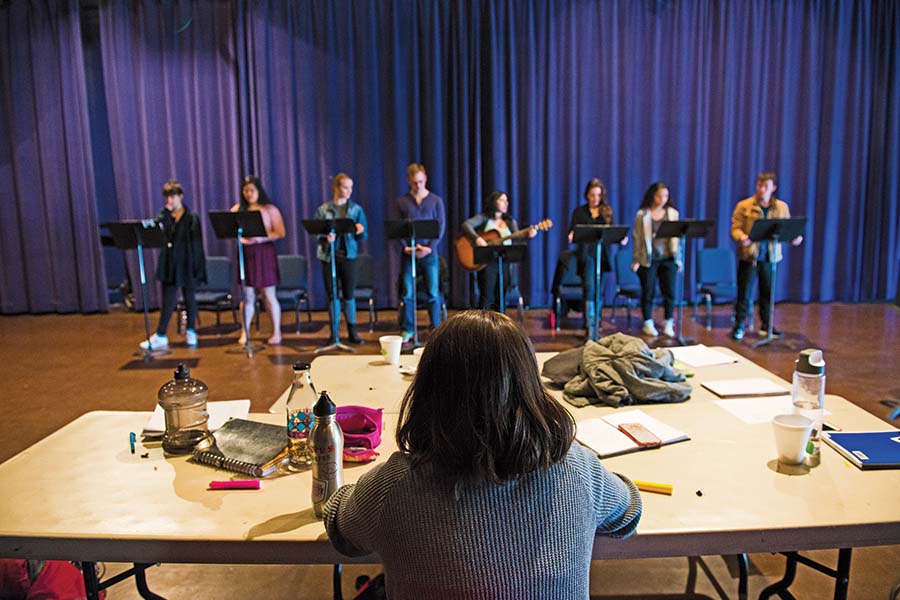Oscar Hammerstein II opened “Getting to Know You” from The King and I with a timeless adage about education: “It’s a very ancient saying, but a true and honest thought, that if you become a teacher, by your pupils you’ll be taught.”
Hammerstein famously mentored Stephen Sondheim (and even inscribed a farewell message to him quoting those lyrics), and as if to repay this debt, Sondheim has been a towering influence and a generous inspiration for many of today’s musical theatre writers, from William Finn to Jeanine Tesori to Lin-Manuel Miranda, as well as many featured in this special section on training in musical theatre. For many writers, the generosity of their forebears is what taught them their craft, and it’s an ongoing tradition, as many working writers take it upon themselves to train the next generation, whether through formal training programs or informal mentorships. Playwright/lyricist Nell Benjamin recalls receiving a master class in songwriting when she presented her work to director Hal Prince; a college-aged Justin Paul remembers handing a demo to Stephen Schwartz on a whim, and later receiving not only detailed feedback on each song but Schwartz’s lifelong support.
But the theatremaking trenches aren’t the only place learning happens. There are also the often unsung educators at university musical theatre programs across the country. They may not have their names in Broadway playbills, but their influence sticks with their students as they embark in the industry. Many of the teachers we spoke with pioneered the musical theatre programs at their schools, from Kaitlin Hopkins at Texas State University in San Marcos to Peter Reynolds at Temple University in Philadelphia. These teachers have inspired their share of successes as well: Gary Kline worked with a 17-year-old Christian Borle at Carnegie Mellon University and saw him emerge as his own kind of leading man, while James Randolph inspired a young Tarell Alvin McCraney at New World School of the Arts in Miami; McCraney now considers Randolph a peer and a colleague.
Today’s musical theatre students are entering a dynamic and evolving marketplace, and university programs are keeping up with it, as the definition of what it means to be a “triple threat” (singing, dancing, acting) changes as the musicals themselves change. For example, Pace University, responding to the trend of many performers creating their own work, makes its two-part musical theatre writing course available to all majors. Going the other direction, Yale University’s playwriting students are now required to take courses in lyric and book writing so that they’re prepared to expand their job opportunities after graduation. Meanwhile many music conservatories have added acting and dancing training to produce more well-rounded vocal students, and hip-hop and rock music technique are popping up on theatre curricula.
Per Hammerstein, the teacher/student relationship is an exchange, not a hierarchy. Just ask Stew, the iconoclastic rocker, who teaches songwriting at Sarah Lawrence. “Teacher and student are a team,” he says. “And that’s how I teach my students. I just tell them what I know, and they can decide if it’s important or not. And I always learn. I think the teachers that learn are the ones that teach in a particular way where they stay open.”


